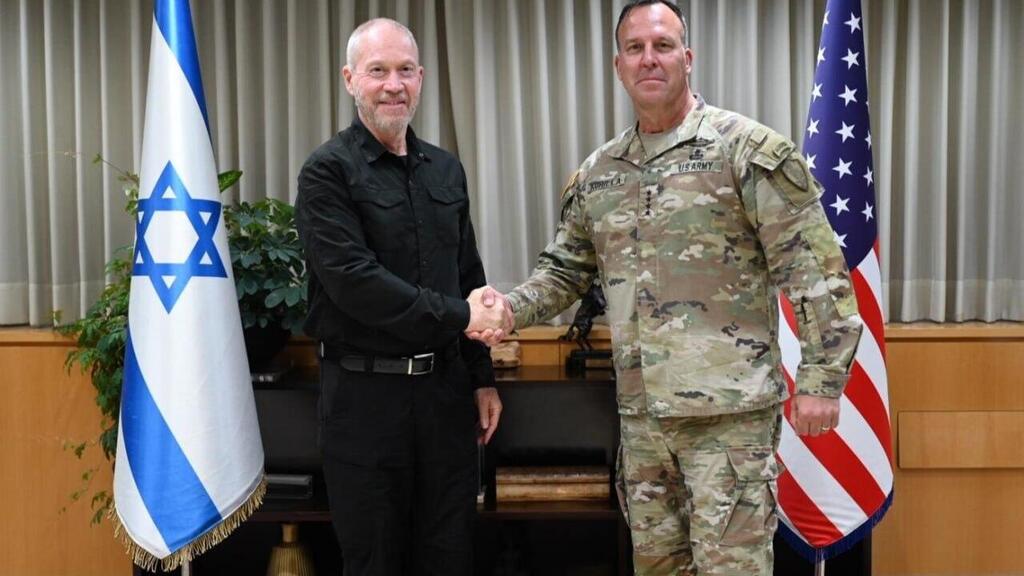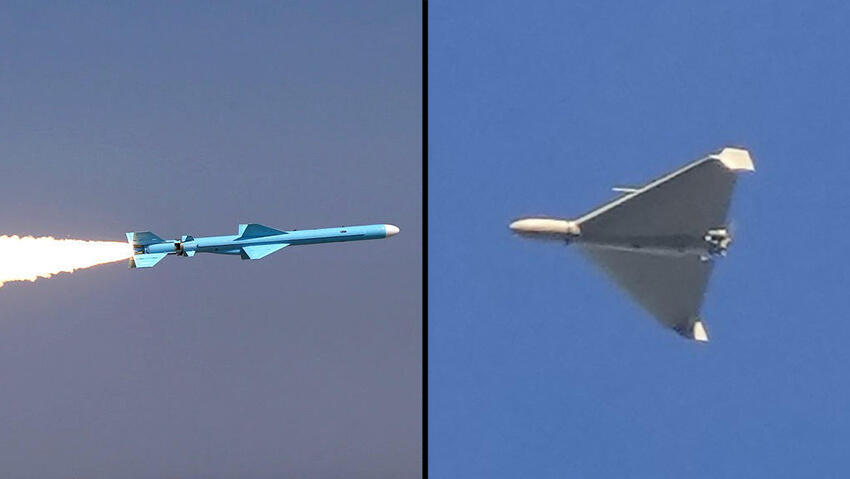Iran was ready to launch its attack on Israel but decided to change or postpone it by a few days, likely after warnings from the Biden administration.
Overnight, the official Iranian news agency Mehr posted on X that that Iran temporarily grounded all air activity over Tehran’s airspace starting from midnight due to "military maneuvers." Mehr also shared a video showing missiles with the caption "Maybe tonight… Stay tuned." The agency quickly deleted both items.
U.S. Middle East envoy Brett McGurk on Wednesday relayed a message to the Iranians via the foreign ministers of Saudi Arabia, the United Arab Emirates, Qatar and Iraq. The message they were asked to deliver was that the Americans are committed to Israel's defense and that the Israelis may attack Iranian territory in response to a strike.
A similar message was delivered in the strong statements made by U.S. President Joe Biden and U.S. Secretary of State Antony Blinken. Israeli officials said American warnings are likely related to the Iranian media reports.
This strange chain of events, which can be dubbed "the battle over revenge," is revealed to be taking place between Israel and the United States and the Iranian regime, that had declared its intent to deal a painful blow in response to the killing in Damascus of senior members of the Iranian Revolutionary Guards, in a strike attributed to Israel.
Israel and the U.S. are working on both the military and the political fronts, not aiming to try and prevent any act of vengeance, but rather to limit it and prevent some of the casualties and damage it could cause. "It is not what the Iranians try to do to us that matters. It is what they succeed in doing and what damage they may cause and where they would strike," an Israeli official said.
The assumption is that Iran hopes to avoid a regional war and direct conflict with the Americans, at all costs. Hence the joint Israeli-American statements that, should an attack be launched from inside Iran, Israel and perhaps the U.S. would retaliate by striking on Iranian soil.
Iran not only has nuclear facilities and a military industry that the Israeli and Americans would like to strike, it also has a large oil industry and a series of dams that, if even partially damaged, could fatally impact the Iranian economy.
In another message, the Israelis and Americans said that if a strike on Israel or its assets abroad, that would be carried out by Iranian proxies and would result in severe damage and casualties, would prompt an appropriate retaliation against the proxies and Iran.
Those messages, especially after they were also made publicly by senior American officials, have had an effect in Tehran, which once again hopes to avoid a regional war and an Israeli-American strike within its borders.
Israel and the United States are also in full cooperation militarily. Defense Minister Yoav Gallant is coordinating both the military and political aspects and has been in discussion in the last day with U.S. Secretary of Defense Lloyd Austin and with Blinken.
U.S. CENTCOM commander General Michael Kurilla arrived on Thursday for discussions with the IDF, earlier than previously planned. The militaries have divided the work to public and covert sections. First is discovering, identifying and alerting of the threat and the second is intercepting it.
3 View gallery


Defense Minister Yoav Gallant with CENTCOM commander Gen. Michael Kurilla last year
(Photo: Defense Ministry)
CENTCOM and the U.S. Navy have advanced means for early detection in various Gulf nations and in the waters of the Persian Gulf off the coast of Iran. Those can provide the early detection that would be followed by effective interception of missiles and drones launched from Iran or its proxies in Iraq or Yemen.
The American forces are bracing for a strike similar to the one carried out against Saudi Arabia's oil production facility in 2019, when over 20 cruise missiles and drones circumvented Iranian territory through Iraq. Israel has been preparing to detect threats from sea, land and air, in a 360°perimeter, closer to its territory.
The Iranians may not have made a final decision as to their plans, although their determination to avenge the slain IRGC officials has been made clear, not least because of the need to project strength internally. They seek to inflict pain on Israel but not enough to cause a regional war or all-out war against Hezbollah. They also intend to carry out their revenge by using their proxies in Iraq, Syria, Lebanon and Yemen.
Senior commanders in the IDF believe their attack would be unprecedented and have therefore increased the level of alert for early detection and interception systems. They also believe such a strike would take place in the coming days. Gallant called for "preparedness but not panic."




